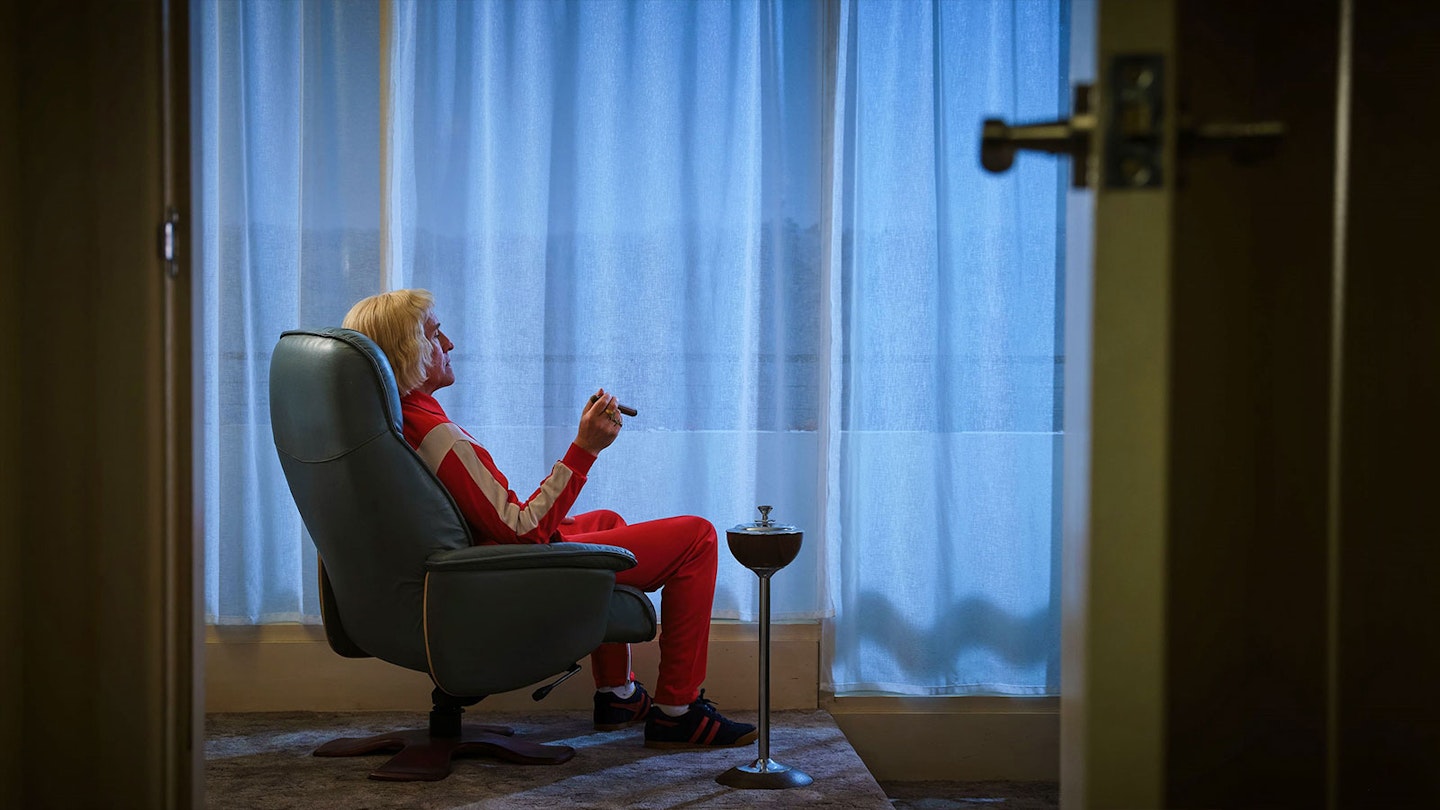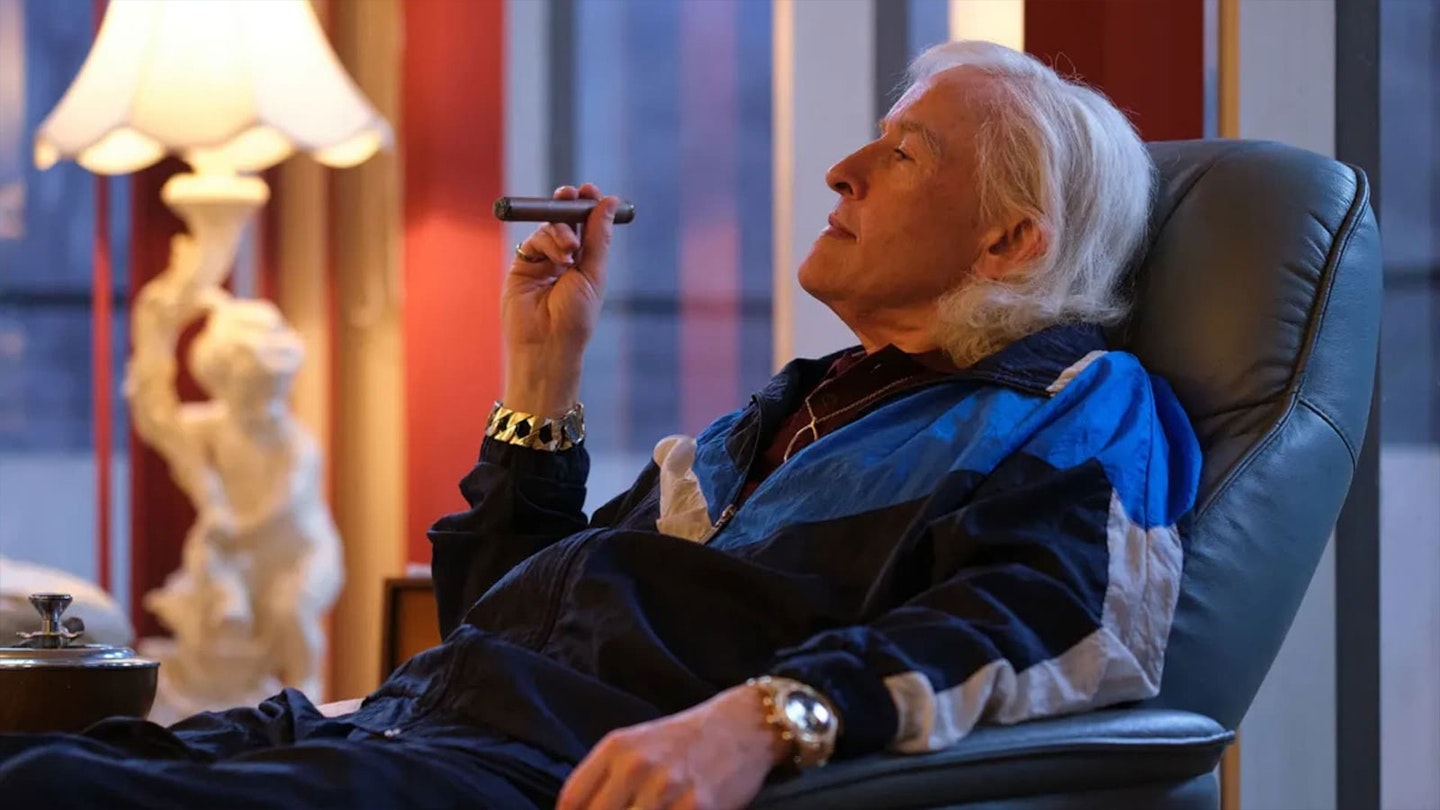Streaming on: BBC iPlayer
Episodes viewed: 4 of 4
By now, most people in the UK will be grimly familiar with the story of Jimmy Savile: how a blond-mopped DJ from Yorkshire rose through the showbiz ranks to become a national treasure. How he became instantly recognisable for his eccentric personality and fashion sense. And how, after his death in 2011, the rumours surrounding his private life suddenly went past gossip and tipped into horrifying facts, when it emerged that Savile was a serial sexual predator and abuser, with hundreds of victims — many of them children at the time.

The Reckoning, a ‘docu-drama’ of the Savile story, is a bold endeavour — especially coming from the BBC, Savile’s home for many years, and one of the organisations which turned a blind eye to his behaviour. ‘The reckoning’ of the title refers to Savile being forced to come to terms with his crimes — it is framed by a series of interviews with an increasingly suspicious journalist, played by Mark Stanley, and it is implied Savile was privately tormented by Catholic guilt. But it could also be inferred as a reckoning for the BBC itself, an institution still coming to terms with the horrors it enabled, and looking to find some understanding of how it all could have happened.
This is a show clearly made extremely thoughtfully, and with a huge amount of care and consideration and craft.
Neil McKay’s script — which opening titles tell us is based on “extensive research, published accounts, and interviews with survivors” — goes some way to help illuminate how Savile was propped up by the institutions around him, from the BBC to the NHS, and even Margaret Thatcher’s government. Some of the behaviour was simply excused by the prevailing misogynist attitudes of the era, waved away as harmless flirting; some behaviour was investigated, but quickly dropped; some was never exposed for fear of legal reprisals from Savile himself.
But it’s perhaps a curious decision that the four hour-long episodes choose to centre Savile himself, rather than any of the victims, or the culture that implicitly sanctioned his actions. It helps that there is an extraordinary, transformative performance from Steve Coogan in the lead role — always a talented mimic, he plays Savile with both a pitch-perfect imitation as well as a steely, self-assured menace — but you sometimes wonder what could be gained by repetitive, textureless scenes of deeply distressing abuse, across many years.

There is nothing excessively explicit about the scenes of abuse, the camera always cutting away at the right moments. It is nonetheless hugely disturbing, especially watched with the knowledge that what is being depicted is barely the tip of the iceberg. (Viewers who are easily upset by such scenes for whatever reason should, of course, exercise extreme caution before watching.) In one sense it punishes the viewer with the grimness of it all. It implicates us as being unthinking supporters of his celebrity, the seemingly bulletproof armour that protected him from consequences. It is a foul medicine to drink down.
This is a show clearly made extremely thoughtfully, and with a huge amount of care and consideration and craft. (You imagine it has been through considerable legal checks, too.) Its perspective never wavers, its moral outlook stringent, its fact-based approach impeccable. But there is still something queasy about watching a series ostensibly made in the true-crime genre, with moments of horror, too (Savile is sometimes seen stalking the corridors of BBC Television Centre like a phantom) — gestures towards genre that feels distasteful for one of Britain’s worst-ever predators.
Ultimately, the most powerful moments in the series come at the end of the final episode, when the survivors are given more of a platform to speak in interviews, clearly still traumatised by their experiences. “He groomed a whole nation,” observes one of them. As well-made as this show is, this non-fiction epilogue is a hint of a different, more documentary-based show that might have had more impact than the one we got: a well-intentioned drama that proves uncomfortable in more ways than one.
